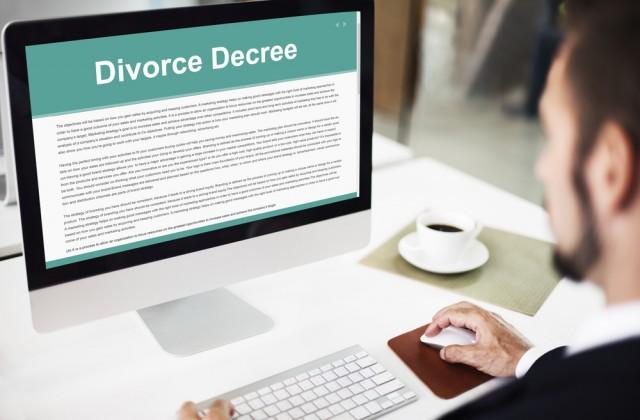** URGENT COVID-19 - WE'RE STILL OPEN *** Please click here for updates.
** COVID-19 - WE'RE STILL OPEN ***
Please click here for updates.
** URGENT COVID-19 - WE'RE STILL OPEN *** Please click here for updates.
** COVID-19 - WE'RE STILL OPEN ***
Please click here for updates.

“The times they are a-changing.”
Bob Dylan wrote and sang these lyrics almost fifty-four years ago. Many of us of a certain age believed that Bob was ahead of his time, but it’s safe to say that not even the great Dylan was envisioning 2020 back in those relatively innocent days of 1964.
It seems only right that he should create an updated version of the song, complete with new material about the internet. And to help him out, here are a couple of items he could use:
Item #1. Divorce Internet Style: In 2015, a New York judge from the Manhattan Supreme Court ruled that a city woman could file for divorce from her absent husband via a Facebook message. It seems her hard-to-find mate had only been communicating by phone and Facebook.
The message was to be repeated until the elusive man acknowledged the summons.
Item #2. Technology and Marriage: A recent Pew Research Center study came up with some not-so-surprising results:
So many things have changed since the internet and technology arrived on the scene: the way we shop, how we entertain ourselves, the ways we get our educations, and how we communicate (or don’t communicate). Even the sacred institution of marriage and relationships is not immune to the effects (both good and bad) of having an online presence.
With the divorce rate in the United States somewhere between forty- and fifty-percent, it’s tempting to correlate the rising rate solely with the rise in technology. But divorce is much too complex to lend itself to oversimplification. That isn’t to say that the internet has not had an impact on divorce.
On the contrary, it has made a big impression, but the impact has been on the way the process has changed and less as a contributing factor to a higher divorce rate. Here are a few things to consider, starting with online dating:
Online dating apps have been taking the rap, some would say an unfair one, for creating the so-called hook-up culture and destroying the concept of romance. But these accusations hardly tell the whole story.
These services, such as eHarmony, Tinder, Match.com, and OkCupid, might be responsible for stronger marriages, successful interracial relationships, and an increase in connections well beyond our usual social network.
Today, more than a third of marriages begin online. That’s in contrast to the real-life social networks that people exclusively used to find a partner in the not-so-distant past.
We dated those who were introduced to us by family, friends, and colleagues, and they were usually a lot like us.
Today, the dating pool is vast and diverse. And some researchers believe that the unions that come from this wide dating net will be more harmonious because of it. Here are some of their findings:
And a couple of predictions:
According to market researcher Nielsen, 30 million users, or about 10% of the U.S. population, visit dating sites every month. And they often pay a hefty sum--$42/month for Match.com and $60/month for eHarmony--for a chance to meet their special someone.
But there are dissenting opinions of the online services. Chelsea Reynolds is an assistant professor of communications at California State University, Fullerton who researches dating behavior. She fears that being able to search by specific demographics and traits will make it easier to fall into what she calls the “McDonaldization” of dating—reducing the list of potential partners by eliminating people different from us.
Good or bad, dating apps will likely remain popular as singles search for their perfect match. But what effect is the internet, on the whole, having on those in established marriages and relationships?
Blaming technology for the rise in divorce rates: That sounds about right, but is it?
You’ve heard all about how Facebook is responsible (or at least plays a leading role) in twenty-percent of all divorces. Social networks and technology, the argument goes, have made it more convenient than ever to have an extra-marital liaison. It’s little wonder that the divorce rate is climbing.
But this isn’t the first time this argument has been made. Back in the 1950s, wives were complaining about being neglected for their biggest rival—a TV set. And technologies in the future will face similar charges.
Technology certainly has some effect on divorce rates, but much of the increase comes from things that no longer have the same power to keep couples together—money, children, and religious beliefs. Not all that long ago, battered women remained in abusive marriages simply because they had no other option.
Today, however, women have careers and are no longer forced to stay in unhappy marriages for financial reasons.
The couple who wants to have children can do so outside of marriage without fear of tarnishing their reputation. And divorce no longer carries the same stigma in the religious communities that it once did.
Much of the argument in favor of technology as an accelerating factor in divorce probably comes from the theory that the escalating amount of choices that the internet provides must surely be causing a general uptick in the divorce rate.
That might be true, but there are some positive aspects of technology that are balancing out at least some of the harm it may be doing to modern marriages.
Social media has drastically changed the way we meet and interact with one another. It provides a platform to find out more about people with whom we would like to associate. Over 33% of marriages in the United States now start online through dating sites and various social media networks.
Statistics show that these marriages are lasting longer, on average, than those that begin offline.
Couples are now beginning to realize the effect of social media use on their relationships and are working to limit the time they spend on Facebook. They are also becoming more transparent in their online activities.
Some couples are even creating social media prenuptial agreements, which set guidelines for acceptable behavior online--not friending exes and not sharing private information or photos without permission, for example.

Much of the damage done to marriages and relationships by social media correlates to the amount of time spent on it. Too much time on sites like Facebook can harm marriage and other romantic relationships.
A study published in Computers in Human BehaviorHuman Behavior compared divorce rates to per-capita Facebook accounts in each state. The study found a link between social media use and decreased marriage quality.
There was also shown to be an average 3% increase in divorce rates for every 20% increase in Facebook enrollments. The study predicted that those who avoided social media would be 11% happier in their marriages.
Facebook can be a breeding ground for jealousy, suspicion, and conflict. Spouses have easy access to information about their significant other’s interactions, and even if their misgivings turn out to be untrue, that person is often left with an uneasy feeling, leading to more monitoring, jealousy, and discord in the relationship.
And research has shown that the more partner checks Facebook activity, the more the bonds of trust come unraveled.
Unfortunately, many of the suspicions about a partner’s social media interactions are warranted. One in twelve adults admits to keeping a secret account, and ten percent say they are hiding messages from their partner.
And a shocking one in three divorces now starts as an online affair.
Smartphones and social media apps now simplify the processes of contacting an ex, seeking a fling or finding a new relationship for unhappy spouses. There is even a site, with a whopping 130 million visitors each month, that caters to those who are married but looking for an affair.
Ashley Madison is a website whose sole purpose is to enable those wanting to have affairs. Their tagline “Life is short. Have an affair” tells you all you need to know about them. It sounds like they could be making huge contributions to the disintegration of marriages. Right?
Maybe not. At least that’s what some social scientists are claiming. Ashley Madison doesn’t encourage cheating but instead expedites a human predilection for cheating, something that has been going on since ancient times.

A perfectly paved road for those who wish to wander down it.
While sites such as Ashley Madison aren’t helping marriages, they don’t exactly encourage affairs, either. Those who have no intention of cheating aren’t going to be inspired by this type of site.
It’s only those that are already dissatisfied with their relationship that will be influenced by online sites that provide a safe and simple way to stray.
What these sites do is make cheating almost appear to be a social norm. It becomes easier to justify if millions of people are already doing it.
While the Ashley Madisons of the online world might not encourage infidelity overtly, those who are sitting on the fence could be persuaded to fall on the dark side by its sheer popularity.
There’s little doubt that technology is the best of both worlds for modern relationships. The technology that simplifies cheating is the same technology that makes it easier to track down a partner. Plus, the internet has closed the cheating gap between men and women.

In the past, men were having the majority of affairs because they had the most opportunities. The internet has created a more level playing field. One thing that hasn’t changed is the reasons for infidelity.
Male affairs have always been mostly physically motivated. Women, on the other hand, tend to have emotional affairs.
Psychologists believe that the internet plays into that emotional dynamic. As women open up to others online, they discover an emotional connection that didn’t exist with their partner. The internet, it would seem, is the perfect venue for an emotional affair.
Maybe we’re blaming the wrong culprit after all. Or maybe there is no culprit. Some anthropologists believe that humans have a biological tendency to cheat, and Ashley Madison and the internet are just capitalizing on those tendencies.
Their theory goes something like this:
In the beginning, men had children with their mates and other women to extend more of their DNA into future generations. For similar reasons, a woman might have had children with multiple men as insurance against one of her mates dying or leaving.
Even if the internet did not contribute to the ruination of your marriage, you could still go online to get help ending it. You can find the right divorce lawyer, get a divorce without one, or research the information you’ll need to start one.
A word of caution: Like anything else that you need to have done, doing it yourself does not guarantee that it will be the least expensive way to go. Here are things you need to consider as you prepare to dissolve your marriage:
After you have made the decision that your marriage is no longer tenable and needs to be terminated, you’ll go online and see ads for a simple and inexpensive process that you can complete from home. No attorneys. No need to root through forms or read reams of instructions.
Your documents are prepared for you and sent to you online. What could be easier!

Depending on your circumstances, this might work for you. But if you’re like most couples, your life is a bit more complicated, and a do-it-yourself divorce would be as appropriate as a do-it-yourself appendectomy.
While the promise of a fast and easy online divorce, free of attorney fees, might sound perfect, divorces aren’t typically simple transactions. In addition to all of the emotions involved, there are aspects of divorce that require reflection and advice instead of merely checking a yes-or-no box on an online form. For most divorces, the supportive counsel of an attorney is invaluable in interpreting and settling your affairs.
But we’re an intelligent couple. Why can’t we handle this divorce ourselves?
No one can blame you for trying to save money and avoid seeing your ex at the same time. And this is not a matter of your intelligence. Just keep the following five things in mind before you decide to order up that quick and easy online divorce.
If you’re looking for a divorce lawyer, recommendations from friends and family are fine as long as they live in the same state as you.

Online research might be a good way to start. Just be cautious because not all referral websites are the same, and you could end up spending countless hours online in the vetting process.
Some websites can assist you in connecting with an experienced lawyer in your area. Above all else, you should know what to look for in a divorce attorney:
Divorce is not a simple process. It affects you, your children, family, and friends both emotionally and financially. If a divorce is imminent, you need an experienced divorce lawyer to help you get through this difficult time and help you protect your assets and legal rights.
Your goal should be an outcome that’s favorable to you and your family. Your best chance of that is with an experienced divorce attorney.
It’s obvious from multiple studies that the internet may be a contributing factor to a higher divorce rate. Websites such as AshleyMadison.com are making it easier for married people to cheat, but there is little evidence to support an argument that the site is encouraging those that would otherwise not wish to start an affair.
And to point a single finger at internet technology would be an oversimplification.
People had gotten tired of their spouses and broken their vows long before there was television, Facebook, or Tinder. Someday, something new and more exciting will replace the internet (we all shudder to imagine what that might be), and you can bet it will also be blamed for the demise of marriage and relationships.
While there are those accusing the internet of being marriage wreckers, there are many who defend dating sites, arguably a big part of the internet, as being responsible for better-fitting unions and longer-lasting marriages. The pros and cons of the internet and its influence on relationships will continue to be debated.
But even if the internet were somehow outlawed, divorces would continue at a steady pace. And divorce attorneys would be the smartest choice for navigating a most arduous process.
What’s your opinion on the internet? It’s a fantastic information super-highway, but are we making too many poor decisions with much of that information?
Jack’s Law Office
305 S Sandusky St
Delaware, OH 43015
(740) 369-7567